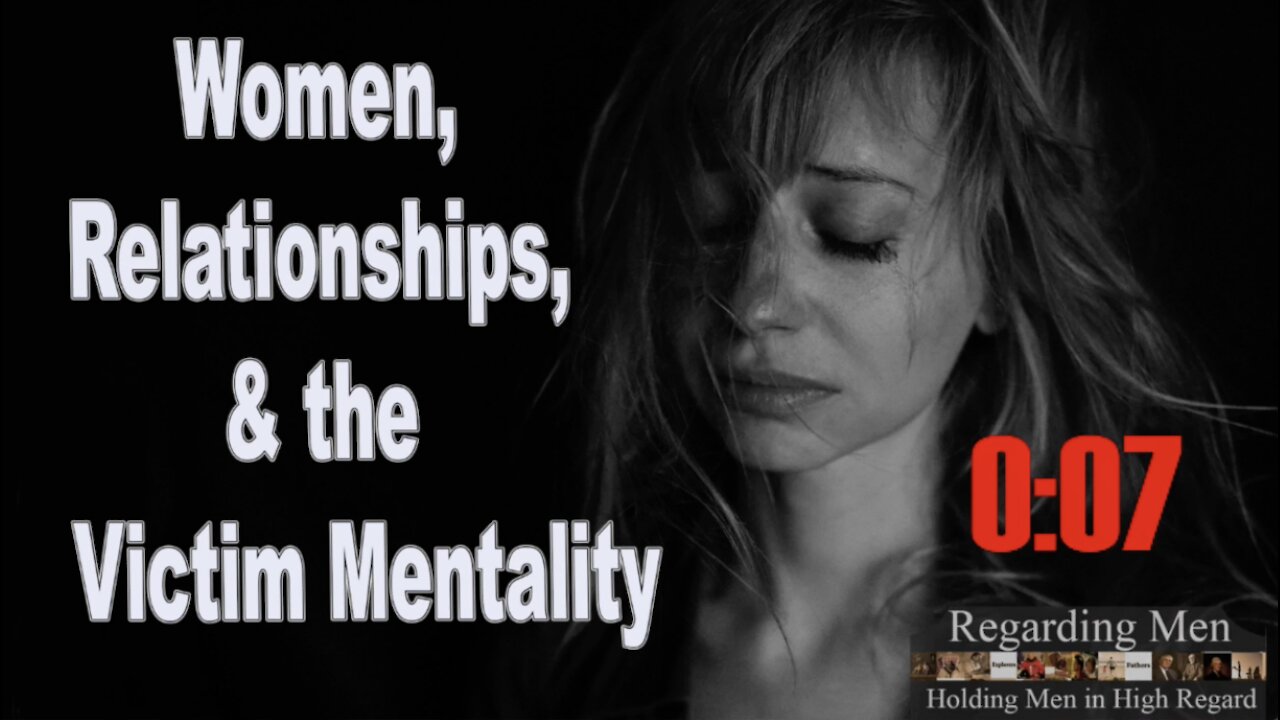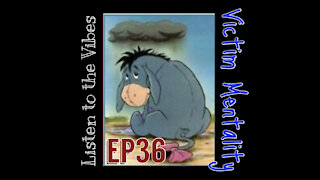Premium Only Content

Women, Relationships and Victim Mentality
"The Tendency for Interpersonal Victimhood: The Personality Construct and its Consequences"
Quotations:
In the present research, we introduce a conceptualization of the Tendency for Interpersonal Victimhood (TIV), which we define as an enduring feeling that the self is a victim across different kinds of interpersonal relationships. [….] We establish the construct of TIV, with its four dimensions; i.e., need for recognition, moral elitism, lack of empathy, and rumination, and then assess TIV’s internal consistency, stability over time, and its effect on the interpretation of ambiguous situations. (p. 2)
Need for recognition refers to victims' motivation to have their victimhood acknowledged and empathized with (Twali, Hameiri, Vollhardt, & Nadler, 2020). (p. 3)
Moral elitism refers to the perception of immaculate morality of the self and the immorality of the other side. […] At the individual level, moral elitism may be used to control others by accusing them of immoral, unfair or selfish behavior, while seeing oneself as highly moral and ethical (Urlic et al. , 2010. Similarly, collective victimhood is based on beliefs about the justness of one’s group's goals and positive image, while emphasizing the wickedness of the opponent’s goals and characteristics. (p. 3)
Lack of empathy refers to an oblivious reaction to others in general and to their suffering in particular. […] Empirically, victimhood was found to increase the sense of entitlement to behave aggressively and selfishly (Zitek, Jordan, Monin, & Leach, 2010). Similarly, groups that engage in competitive victimhood tend to see their victimization as exclusive, thus minimizing or outright denying their adversary’s suffering (Noor et al., 2012). (p. 4)
Finally, Rumination refers to a focus of attention on the symptoms of one's distress, and its possible causes and consequences rather than its possible solutions (Nolen-Hoeksema, Wisko, & Lyubomirsky, 2008). (p. 5)
It should be noted that both on the individual and the intergroup levels, victimhood is not necessarily consecutive to a past victimization or trauma (Berman, 2014b; Schori-Eyal et al., 2017). (p. 5)
Finally, another intriguing path for future investigation is what happens to high-TIV individuals when they are in power or leadership positions. Ample research has indicated that the powerful are more likely to behaviorally pursue their values and goals (for a review see Guinote, 2017). Future studies could directly investigate whether high-TIV powerholders feel less inhibited to express hurtful feelings and behave in a vindictive way. (p. 31)
-
 12:36
12:36
Thevibesbroadcast
4 years agoListen to the Vibes Daily Devotional ep36 Victim Mentality
37 -
 2:22
2:22
KIVI
4 years agoBellevue victim
233 -
 0:12
0:12
askannalisa
4 years agoSuccessful Relationships ...
62 -
 6:28
6:28
Mark G. Cheshire: Singer, songwriter, musician
4 years ago $0.01 earnedVictim Of The System
54 -
 1:52
1:52
sumnameforus
4 years agoSymbiotic Relationships
10 -
 0:03
0:03
overtimes
4 years agoCovid-19 victim.
105 -
 0:31
0:31
leahjuarez
4 years agoWomen at work
160 -
 59:30
59:30
The Soul of the EveryMan
4 years agoSoul of the Everyman - Victim or Victor
27 -
 0:59
0:59
GreggAllen2007
4 years agoVictim of Love intro - the Eagle's Cover
55 -
 31:50
31:50
Standpoint with Gabe Groisman
1 day agoEp. 64. Canada: the 51st State?!
42.2K9